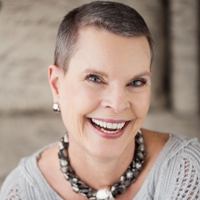Nothing compares with the moments my children were born.
My son offered his opinion of the process instantly with an indignant wail. I laughed in delight. My daughter, after being placed on my tummy, quietly contemplated me with her great big eyes. I melted in that gaze. I vowed to honor the individuality of each of them, to foster their uniqueness.
I would guide them, teach them, keep them safe from harm, and lay down my life for them if necessary—such was the magnitude of love, especially in those precious first moments.
I had no idea the depth, the breadth, the enormity of what would be required of me in protection of my children. Perhaps none of us does. I have loved them fiercely their entire lives. I thought, like all of us whose instant bond as a parent includes protection, that my children were safe with me. A harbor in the sea of life.
But life isn’t insular.
We share community, whether it’s school, or church, or sports. We live in families. Those around us aren’t always paragons of virtue, which is the most frightening part. Eighty-five percent of molesters are family, or known and trusted by the victim. How do you protect your child from inherently trusted people? Extended family, coaches, children’s program leaders, pastors, priests, best friend’s siblings?
We must face these statistics: one in four girls are molested by the time they’re 18 and one in six boys.
When we loosen parental arms around our children and entrust them to family, schools, organizations, sports programs, and church, the best protection against sexual abuse—or any abuse—is prevention. Start young, in appropriate ways.
Here are some parenting so’s and don’ts to minimize the risk to your young sons and daughters:
Do:
Be age appropriate. Your child’s curiosity will give you “teachable moment” opportunities.
Babies play the body parts game, right? Head and shoulders, knees and toes—so, when your child notices differences in a sibling or parent’s body parts, name them anatomically correctly. You want your child to know their private parts are special and privately theirs.
Teach your child to think, feel, then act. In different situations, encourage them to:
Think about what someone said or did. Identify their feelings about it. Were they happy? Sad? Icky? Scared? Confused? Tell a trusted adult if they feel scared or icky.
Help your child identify trusted buddies—adults they can talk to beyond just you. A trusted adult could be a grandparent, a baby sitter, a caregiver, a teacher.
Minimize the opportunity for sexual abuse. Have a trusted adult with your child at all times. This includes sports fields, parks, and public restrooms.
Decide how you’re going to talk about sex. Be prepared in advance with age appropriate responses.
Teach your child to respect others’ boundaries. It is never okay to touch someone (hug, tickle, kiss) if the other person doesn’t want to be touched.
Once your child is capable of their own hygiene, teach them the only time their private parts can be touched, except by them, is if those parts hurt. Then it’s okay for a trusted adult, or a doctor with a trusted adult present to help.
There are safe secrets, and unsafe ones. Safe secrets are fun and make a child feel happy, and they don’t have to hold onto them very long—for instance the secret of a surprise birthday party. Unsafe secrets are those which make a child feel scared, or icky, and they’re told to never, ever tell.
Know where your child is, with whom, and check in.
I talked recently with Jane, who had taken her daughter on a play date. Five first grade girls raced away down the hall while the moms chatted in the living room. They heard giggles, moments of silence, then laughter. After a few minutes, Jane followed that cheerful sound to the family room and stepped in. A man (a brother of their host) was playing a game with the girls. They were to dance while he flipped a coin in the air. The first one who picked it up off the floor was to stand in front of him, turn around and wiggle her bottom at him. Appalled, Jane stopped the game, talked to her host, and took her daughter home.
Don’t:
Don’t require children to hug or kiss you or anyone else if they don’t want to. It teaches them their body isn’t their own, and that they have no say about what happens.
Don’t deflect your children’s questions:
About body parts, about where babies come from, about anything in which they express curiosity physically or sexually.
Don’t teach your children phrases like:
“What happens in this family stays in this family.”
“We do not talk about what happens in this family to anyone.”
“If anyone asks what happened, or what’s wrong, you tell them ‘I don’t know.’”
The subtle messages are that there is something wrong with our family or what we, as a family, do, and that if you talk, you could get us all in trouble. Further, you are teaching your child to lie.
Let’s face it, parents can’t keep “eyes on” 24/7 even in an intact family whose devotion to their children is above reproach. Add divorce, blended families, childcare, or live in caregivers and it becomes even more critical to teach—yes, teach—our children comfortable boundaries. We want to empower our children to respect their bodies, voice their feelings, and be able to act on their internal messages. We want them comfortable inside their own skin, knowing how special they are, clear on boundaries, and have safe trusted adults they can talk to.
It is their best protection when they are out of our sight.
Author: Laura Landgraf
Editor: Catherine Monkman
Photo: Nachans/Flickr







Read 0 comments and reply